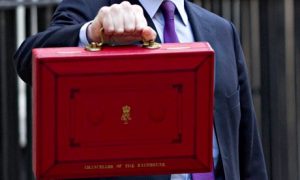With the General Election a matter of weeks away, the recent Budget managed to hail economic recovery, gloss over spending cuts and serve up a raft of measures designed, among other things, to support savers and first-time house-buyers.
Chancellor of the Exchequer George Osborne announced the launch of a new ‘Personal Savings Allowance’ that will enable basic-rate taxpayers to earn up to £1,000 each year in savings interest, free of tax. He also introduced new flexibility for Individual Savings Accounts (ISAs) that will allow savers to withdraw money and replace it – in the same tax year – without losing any of their tax-free allowance. At the moment this provision will apply only to cash ISAs. Elsewhere, Osborne revealed measures designed to help first-time house-buyers with a deposit – through a new ‘help-to-buy’ ISA; the government will add a bonus of 25% to the saver’s contribution, to a maximum of £3,000 on £12,000-worth of savings.
Further reforms to the pensions system elicited a mixed response. From April next year, pensioners who have already purchased an annuity will be able to sell that income to a third party in exchange for a lump sum that will be taxed at their marginal rate instead of the “punitive” 55% rate. Meanwhile, the Lifetime Allowance for pension contributions will be cut at the same time from £1.25m to £1m, saving the Treasury £600m a year.
The personal tax-free allowance will rise from £10,600 in 2014/15 to £10,800 in 2015/16 and to £11,000 in 2016/17. The Treasury calculates this will cut income tax for 27 million people. The threshold at which individuals begin paying higher-rate tax will rise from £42,385 to £43,300 by 2017/18. Elsewhere, schemes to avoid inheritance tax via deeds of variation will be reviewed.
On balance the announcements are positive news for the majority of Platinum’s clients and we look forward to bringing you more details on each point over the coming months.
On a broader economic outlook, the UK economy expanded more quickly than any other major advanced economy during last year, registering growth of 2.6%, which is somewhat lower than the 3% growth forecast in December 2014. The Office for Budget Responsibility’s forecasts for economic growth in 2015 and 2016 were raised to 2.5% and 2.3% respectively, while its forecast for 2017 was cut to 2.3%. Debt as a share of GDP is falling more quickly than previously forecast, and the Chancellor therefore intends to end the squeeze on public spending earlier than expected. From 2019/20, public spending is set to rise in line with economic growth.
As many people are aware the recovery is still underway and there is a long way to go before the UK economy can be said to be operating in the ‘black’. Whilst there will likely be further budgetary cuts, there are signs that our economy is building and hopefully the impact of any cuts will be lessened.
As always we welcome the opportunity to discuss the overall market situation with our clients as well as their individual plans. We would urge any concerned clients to get in touch with the team at Platinum.
